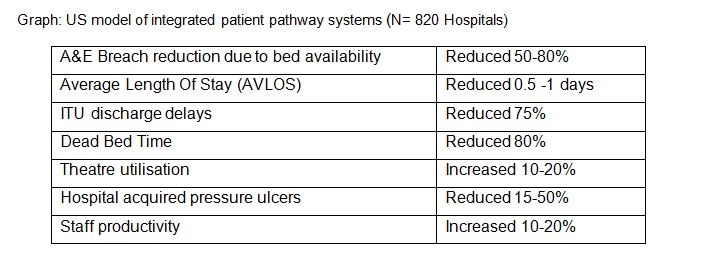28.09.16
Better management and better care – Piloting a different approach for patients
 Bernard Quinn, programme director for improvement at NHS Improvement, explains how the regulator is looking into ways hospitals can improve the way they manage patient journeys.
Bernard Quinn, programme director for improvement at NHS Improvement, explains how the regulator is looking into ways hospitals can improve the way they manage patient journeys.
When you’re at the coalface, it can be hard to find opportunities to improve the way you do things. We know that hospitals need to focus on their day-to-day work making sure services are being delivered and patients are being cared for. That is where we come in.
NHS Improvement is about more than just setting the pace for financial rebalance and supporting improvement. We are there to help do the research: speaking to trusts and reaching out to health professionals to see how we can help hospitals do things differently.
We scour the NHS and international health systems for innovative solutions to the challenges trusts face on a daily basis, looking for examples of successful improvements.
One area we are especially interested in is seeing how hospitals manage patient journeys and how they can use digital operational systems to do things differently.
Use of workflow management systems is well developed in the industrial sector where process planning, scheduling and flow control software are routinely used. This approach is beginning to move into the healthcare sector and we are keen to see how it can be used to improve patient experience.
We have seen examples of how quality of care, capacity, costs, planning, leadership or processes (to name a few) can be improved. But rarely do we come across an innovation that addresses all these, and rarer still is an innovation that potentially results in a 10-25% gain in bed capacity across emergency and elective systems.
In the US we have seen how using systems that bring together clinical, financial and operational information can transform a patient journey from admittance to discharge. There are more than 800 hospitals in the US working with systems that help co-ordinate patient administration, theatres timetables, pathology and allied health systems to provide real-time insight into the operation and capacity of the whole hospital, helping to identify patients who might be at risk of delays against their expected pathway.
We have talked to some providers that have connected their operational systems through process flow software with their clinical systems and found that on average the capacity was improved by 15%, with some improving by as much as 25%.

Some trusts are already taking the initiative with similar approaches. In Lord Carter’s report we referenced that Wolverhampton Hospitals NHS Trust used technology to track patients and medical equipment, such as pressure mattresses, using real- time ward screens and what is known as a centralised patient placement and co-ordination centre to work out which patients are behind their treatment plan, and how to resolve the delay. This is exactly the sort of innovation, and technology, which when used well can give trusts the opportunity to transform the way they deliver their services. It releases ward staff from chasing delayed results and helps patients have a better experience.
There are providers out there who are already working hard to improve the way they use up-to-date tools, but there are still too many using dry wipe boards and bed meetings to track thousands of complex patient journeys.
We want to expand on the work at Wolverhampton by piloting the technology programme with three acute, multi-site providers who are willing to invest and test out this approach and improve the way they manage their flow of patients in 2016-17.
So far we have two trusts who are looking to resource and test this approach and share the results with us, we are looking to find a third.
We will include these pilots in the national elective care plan for this year so that all regions and all providers get to see what’s happening in these trusts, the issues they have to overcome and the benefits they see delivered.
I look forward to sharing the learning from these examples and hope to set a new standard of excellence in managing the patient’s journey through the hospital in the same way we are used to seeing in the delivery of clinical care.
It will take a few months for the pilots to get going and we plan to share the learning from them, starting in 2017.
Have you got a story to tell? Would you like to become an NHE columnist? If so, click here.